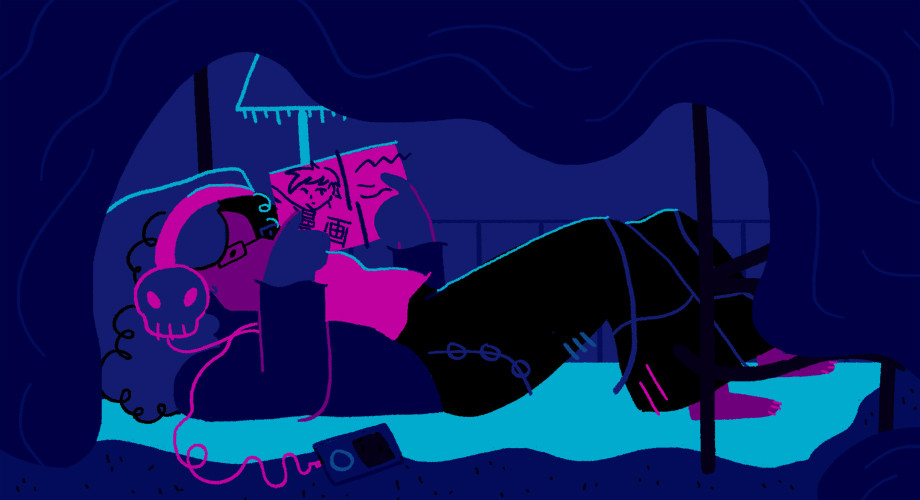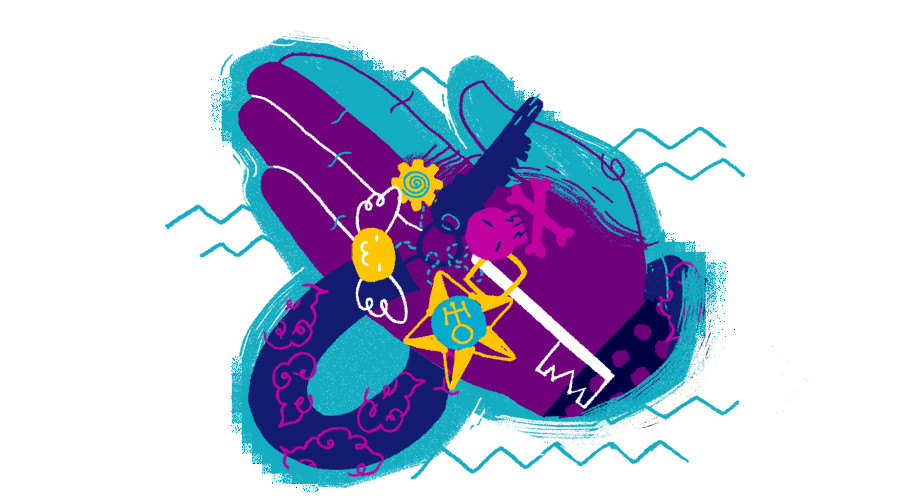Blog Series
Black Canadian Childhood

Illustration by Beena Mistry
‘Growing Up Black in Canada’ is a writers’ series brought to you by Black Futures Now Toronto in partnership with Shameless Magazine. The series is meant to bring forward local and personal Black histories that do not fit into mainstream narratives about what it means to be a young person in Canada. Throughout the series we will highlight the non-fiction work of five young writers from various backgrounds. Through their stories, we will explore what growing up Black in Canada has meant to them, and the impact that these experiences have had on their sense of self. These pieces explore themes of personal growth, systemic injustices, community, self-awareness, longing, and joy that are unique to each writer, and speak to the particularity of experiences that comes from growing up different locales in Toronto and beyond. Our hope is that by sharing them, they will resonate with others in ways that push them to look at who they are more closely and Canadian history, as well as cultural identities more critically. This is Part 1. Also check out Part 2, Part 3, Part 4 and Part 5
This is how it goes: when I’m five and in church, and my mom says siéntate, I don’t speak one word of Spanish but I know that means to sit down. My mom - dark-skinned, smooth haired, afro-latina woman by way of Venezuela and Trinidad, keeps Spanish out of her daughters’ mouths. This place where people are confused by her Trinidadian patois as it mixes with the Spanish accent she carried with her on the plane over here. My mom can’t teach us the language of Senora Rosa, my grandmother, because she is scared we will confuse French and Spanish, will slip and trade de nada for de rien and the kids in all my classes will mock me, that my teacher will have something to say besides I am an excellent student, that I will go far, that my language comprehension is above normal, that me and the English language are meant for each other. Instead, she teaches me how to make the perfect arepa, and tells me of how beautiful my great-grandmother was. How that same woman went against her Indian-Spanish parents’ wishes and married a man from Africa - how my great-grandma loved her grandchildren even if her family didn’t. I will take this for the lesson it is, my dark-skinned black girl-ness needs to be protected sometimes from the people that are supposed to love you the closest, that food is another word for welcome, for home when the moving of your tongue just won’t do.
When I am eight I have a crush on a girl for the first time. The daughter of a church Elder (later evangelical pastor) and fervent lover of all things Jesus, Sunday school teacher, I will not know that this is a crush. Just that her hand in my own feels electric as we bolt across the green soccer field of my school. A couple years later I will realize it for what it is, this girl puppy love, and bury it deep beneath my mother saying gay people are a sick abomination, beneath the voices of old white men on Christian radio talking about conversion camps, beneath my father kissing his teeth when gay marriage is legalized in Ontario. I will deny this feeling for years, silently enthralled with all of my feminine best-friends, self-hate ripping through me easy.
At the end of grade eight, we’ve already moved from the working class area of South Oshawa to the painfully white, rich area of North Whitby. I have left behind the black and brown girls who became my best friends, their parents also from the Caribbean. Substituting them for the outcast white kids where I’m at. The kids at my new school call South Oshawa, “The Dirty Shwa”, and I soon learn to call this new town “White-by.” This is the year my dad will drag almost all my clothes from my closet and hide them in garbage bags in the garage. He will tell me they are gone forever, punishment for the way my body has been blooming: thick and curved. I have an ass now, and in the rise of Stitches and Siblings clothing my love for low waisted bell-bottoms is seen as trashy. He tells me that I look like one of the girls he sees standing on Jarvis street corner downtown and my mother agrees. My girl-body in 2003 femme-fashion has been given as the new reason for people to leave traces of their sticky fingers all over my body. I realize, for the thousandth time, that to be feminine means to be un-safe and so I steal my older sister’s baggy clothes. Nothing fits me close by ninth grade - especially not my school uniform - and I try and use androgyny as a weapon against every hand and mouth that wants a piece of me. It doesn’t work.

Illustration by Beena Mistry
By grade twelve, I am black girl strange. I have stumbled upon the Afropunk documentary and will hold it close to me forever. I have DIY’d all my clothing, stitched shards of mirror onto my pants, and beaded Japanese rock band names across my pockets. I’m an anime nerd with deep love for Billie Holliday and Tori Amos. Too socially anxious to sit with the black kids I didn’t know, having to withstand listening to the gothy white kids call me oreo, tell me I must have been dipped in tar because black kids aren’t supposed to like Mindless Self Indulgence. All of it adding to the trauma I carry around like a well kept secret in my backpack. I’ve been self-harming for two years and am adamant that no one knows, not even my best friends who’ve shown me their scars. Music, poetry and my sisters save my life daily, while I remain undiagnosed gritting my teeth against my sadness and the hallucinations that keep swelling around me. No one has told me black girls get to be mentally ill, too. Just endless stories of broken white girls clawing their way from madness, leaving me foundered in my own.
And here is the important part: I have survived. My femme-ness, queerness, madness and most importantly my blackness survived with me. All these things that I saw as dangerous or deadly growing up as a black girl in Canada are what birthed me strong and vulnerable and complex. The blackness that was seen to have a singular story by Canada’s white supremacy had me bloom messy, defying category. All these things are what help me find community each time I am lonely. This black girl in Canada home cooking food across every language, enjoying the sumptuousness of being queer and femme with purpose, the illness I have used to build empathy, it is so much, it keeps me full.



